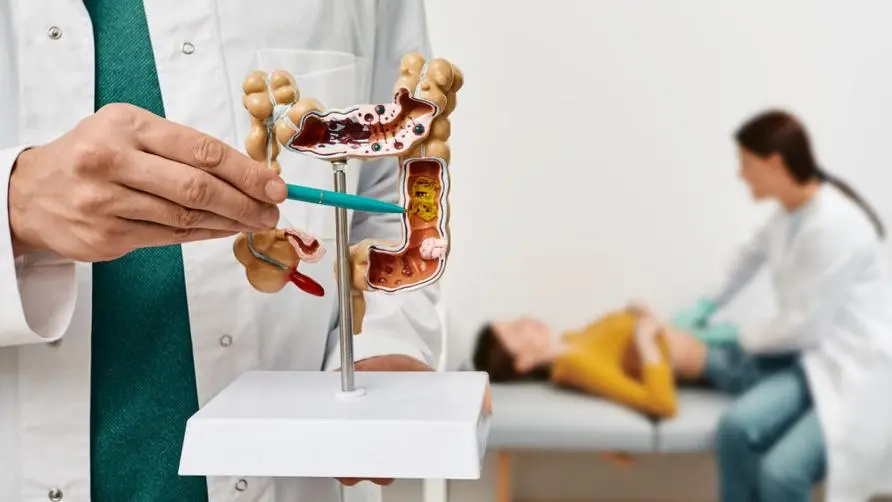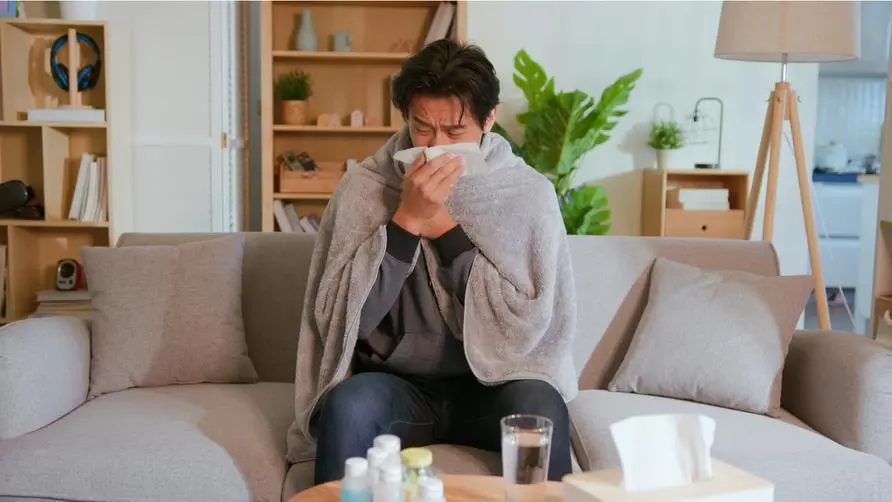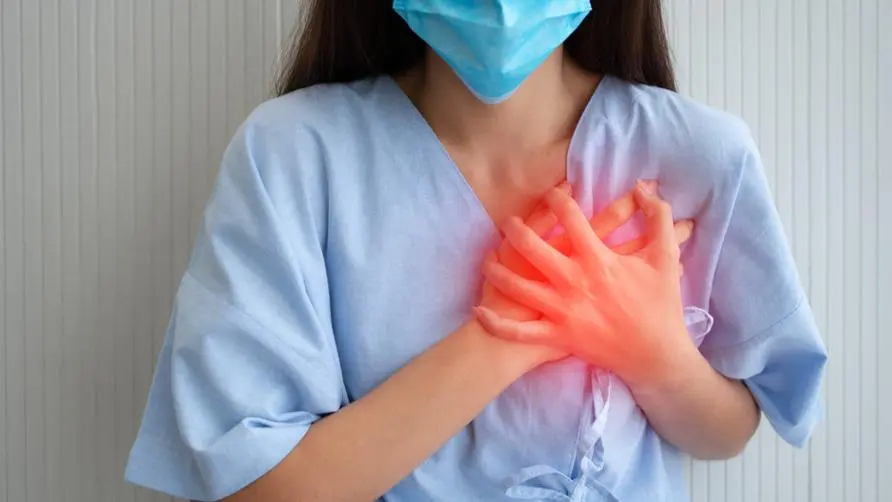Not brain fog! Taiwanese people's risk of taking drugs during the golden period of COVID-19 is reduced by 30% due to "1 change"

Unable to concentrate and sleep quality deteriorated after diagnosis? Survey results reveal: “This change” is the most impressive
With the lifting of mask restrictions and the gradual implementation of the isolation-free policy for mild cases, how to continue to coexist with the virus has become an important issue this year. The Taiwan Society of Infectious Diseases conducted a survey on the impact on the quality of life of Taiwanese people diagnosed with the disease. Up to 60% of those diagnosed said that after being infected with the epidemic, their sleep, mood, memory, concentration, etc. were all affected, and even their physical strength was the most affected.
In addition, 40% of those diagnosed believe they have symptoms of COVID-19, and each person has sought medical treatment at least 0.73 times on average, which has affected Taiwan’s health care resources. In order to continue to remind the public to remain vigilant against COVID-19, the Taiwan Society of Infectious Diseases and the Taiwan Society of Infection Control invited Wang Yujie to serve as the COVID-19 health education ambassador. They also created an “epidemic prevention fat truck” that will tour 10 locations in the north, central and south, and go deep into rural areas to protect the public. People across Taiwan stay away from the new coronavirus.
Recommended reading: Will diagnosis cause “complete loss of sexual desire”? Research confirms: “Three major symptoms” of COVID-19 may lead to sexual frigidity
What effects does COVID-19 have on the body? Not only brain fog, but also hair loss and blood clots are possible?
According to the definition of the U.S. Centers for Disease Control and Prevention (CDC), if the acute symptoms after the diagnosis of COVID-19 last for more than 1 month, it qualifies as “long COVID-19”; the World Health Organization (WHO) defines long COVID-19 as the period after the diagnosis of the virus. 3 months later, there are still symptoms that cannot be explained by other symptoms and last for at least 2 months, and usually have an impact on daily life and physical activity.
Chen Yijun, chairman of the Taiwan Infection Control Society, said that COVID-19 may have a wide range of symptoms, which may cause damage to multiple organs, affect the functioning of the skin and brain, and even cause venous thrombosis. If classified by various parts of the body, potential symptoms are roughly as follows:
Skin tissue: hair loss, rash, ulcers.
Brain function: brain fog, anxiety, depression, insomnia
Lungs: dyspnea, pulmonary fibrosis, ground glass shape on lung X-ray
Hormone function: new onset of diabetes, exacerbation of diabetes, subacute thyroiditis, abnormal bone metabolism, mood changes, changes in menstrual cycle
Lower limbs: venous thrombosis
Heart: palpitations, chest pain, myocarditis
Kidney: acute kidney injury
Systemic symptoms: fatigue, multi-system post-inflammatory syndrome
Muscle/Joint: Muscle or joint pain
Authoritative journal not only affects life but also damages organs: the risk of death increases by 1.6 times after diagnosis
Chairman Chen Yijun further stated that in addition to Taiwan, many people can also be seen internationally being affected by COVID-19 . Statistics from the U.S. CDC indicate that 30% of those who have been diagnosed and recovered have contracted COVID-19, and 80% of those who have contracted COVID-19 find their daily lives restricted, with the impact particularly obvious on people aged 40-69. In addition, COVID-19 will not only affect life due to COVID-19, but may also damage multiple organs and cause long-term harm.
“According to research tracking, nearly 70% of people have suffered at least one organ damage six months after being diagnosed, with abnormal functions of the liver, heart, spleen, lungs, etc.!” Research from the authoritative journal “Nature” also shows that pulmonary embolism, The risks of cardiac arrest, stroke, diabetes, etc. are increased by 2.93 times, 2.45 times, 1.52 times, and 1.4 times respectively, and the risk of death is even increased by about 1.6 times.
Recommended reading: Are you prone to breathlessness and fatigue after diagnosis? Doctors reveal 3 key points of “self-care”: speeding up physical recovery
The anti-epidemic action must continue! Oral drugs and vaccines are more protective
As for who is at high risk of contracting COVID-19? Chairman Chen Yijun explained that those who are seriously ill or hospitalized after being diagnosed, those with a history of chronic diseases, and those who have not been vaccinated need to be especially careful about the harm caused by COVID-19. The symptoms may be more severe than those of the average person. According to research, administering the COVID-19 vaccine can reduce the risk of COVID-19 by about 15%, showing that the vaccine still has a certain protective effect.
Chairman Chen Yijun said that the main cause of COVID-19 is the abnormality of the immune system caused by the virus remaining in the body after diagnosis. Studies have pointed out that taking oral antiviral drugs within 5 days of diagnosis can not only reduce the risk of severe illness and death, but also reduce the prevalence of COVID-19 by 26%. Active medication is currently the best solution to prevent COVID-19 and severe illness. . High-risk groups are called on to seize the golden treatment period and take medicine as soon as possible after diagnosis to avoid the impact of COVID-19 on their daily lives.
Recommended reading: Can people diagnosed with COVID-19 receive oral medication? Who is applicable? 2 Must-read drug side effects and medication methods
Only 40% of high-risk groups receive treatment! Will COVID-19 become a new crisis in the post-epidemic era?
In order to understand the impact of COVID-19 and long-term COVID-19 on Taiwanese people, the Taiwan Society of Infectious Diseases conducted a “Survey on the Impact of COVID-19 on People in Taiwan” in February this year. The survey results are as follows:
60% of people feel that their daily lives have been affected after being infected by the epidemic, with “decreased physical strength” being the most obvious.
40% of confirmed people believe they have COVID-19 symptoms, and 70% of them say symptoms have caused problems in their daily lives.
People suffering from COVID-19 have sought medical treatment an average of 0.73 times. Among them, neurological symptoms and cardiovascular system symptoms are the most serious, followed by systemic and digestive system symptoms, which have not improved after medical treatment and are still considered to require medical treatment.
Only 40% of high-risk groups receive oral antiviral drug treatment after diagnosis.
Wang Fude, Chairman of the Taiwan Infectious Diseases Society, said that judging from the questionnaire results, the incidence rate of COVID-19 in Taiwan is not low, with respiratory, systemic and neurological symptoms being the most common (>30%). What needs attention is that high-risk groups should actively use oral antiviral drug treatment but still have not reached 60%, which may aggravate the occurrence of new coronavirus symptoms and easily lead to the risk of severe illness and death.
Chairman Wang Fude added that based on questionnaire statistics, it is estimated that patients with COVID-19 seek medical treatment 0.73 times on average. If the more than 10 million confirmed cases in Taiwan are counted, health insurance resources have invested at least 1.8 billion in the treatment of COVID-19. If we estimate based on the recent number of new confirmed cases, approximately NT$200 million in health insurance resources may be invested each quarter. Under the double blow to Taiwanese people’s health and national funding, COVID-19 can be described as a “new crisis” in the post-epidemic era.
Starting next week, people with mild symptoms will be exempted from notification of quarantine! Experts recommend that you have enough supplies of “1 item” at home
Wang Yujie, who was invited to serve as the COVID-19 Health Education Ambassador this year, also shared for the first time that it has been more than half a year since she suffered from COVID-19 last year, but her physical strength, thoughts, and memory are still affected. Dizziness and vomiting occur while working. Wang Yujie said that despite the relaxation of epidemic prevention policies, she still disinfects with alcohol and washes her hands with soap at all times, just because she does not want to face the risk of reinfection.
Speaking of the relaxation of epidemic prevention policies, Chairman Chen Yijun also reminded that starting next week, people with mild symptoms will not need to be notified and quarantined. The chance of people coming into contact with the virus will greatly increase. They should prepare enough rapid screening reagents at home, and should still be screened quickly if suspected symptoms appear. And seek a doctor’s diagnosis, and seize the 5-day golden treatment period to use oral antiviral drugs to avoid subsequent severe and prolonged COVID-19 symptoms.
Chairman Wang Fude added that although young people generally have mild symptoms after being diagnosed, elderly people over 65 years old and 14 high-risk groups still have a higher chance of severe illness. They should master the basic epidemic prevention principles and wear masks in crowded places or hospitals. , and truly receive the basic dose and additional dose of vaccine, and truly master the epidemic prevention rules and habits, only then can we truly embrace the new future after the epidemic.
Further reading:





